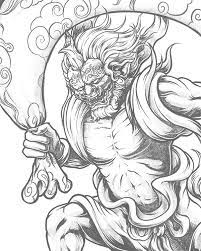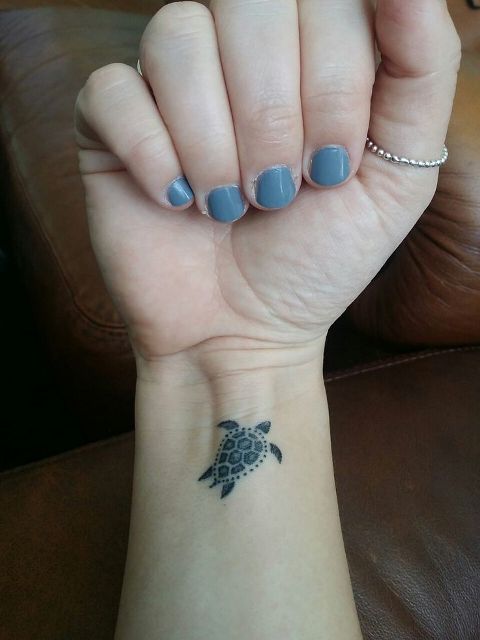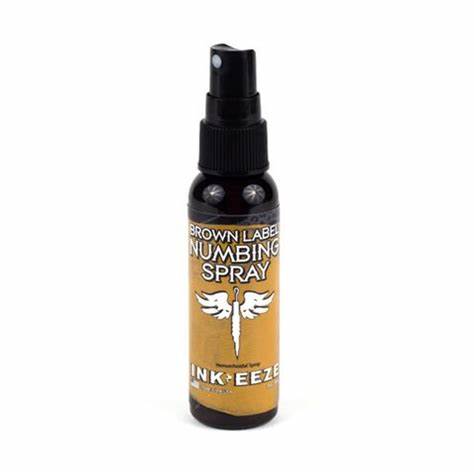
Japanese tattoos are profoundly symbolic and draw inspiration from myths and historical events. They often incorporate elements representing luck, prosperity, strength, and courage. Let’s explore some of these symbolic motifs frequently found in Japanese tattoos.
Koi Fish and Dragons
Koi fish are popular in Japanese tattoos as they symbolize luck, prosperity, and good health. They also reflect traits such as perseverance and determination. Combined with dragons, which represent strength and bravery, they create an attractive pair of symbols.
Hyottoko
Hyottoko is a character from Japanese mythology known for his comical expression. His round face, bushy eyebrows, and mustache make him a favorite choice for tattooing, symbolizing luck and strength. Hyottoko is often associated with festivals, masks, and charms, and adding him to your life is believed to bring balance to passion and excitement.
Kintaro
Kintaro is a beloved folklore hero in Japanese culture who embodies strength and courage. Raised by a mountain hag, Kintaro is often depicted fighting off bears or uprooting trees. He is considered a symbol of good luck and can be found in children’s totemic symbols and good luck charms.
Foo Dog or Lion
Japanese tattoos featuring Foo Dogs or Lions combine characteristics from both species and symbolize protection, strength, and courage. They are believed to ward off evil spirits.
Peonies and Chrysanthemums
Peonies, known as the King of Flowers in Japan, are symbols of wealth, elegance, and good fortune. They are often associated with the Yakuza, representing a reckless machismo. Chrysanthemums, on the other hand, serve as the official flowers of Japan’s Emperor and symbolize longevity and happiness.
Tofu Boy
Hitotsume-kozo and tofu-kozo, supernatural beings, are depicted in various art forms and popular tattoo choices. Their cute appearance makes them suitable for plush toys and teddy bears as well. They are often seen wearing hats, kimonos, and plates of tofu and may include other symbols like daruma dolls and horned owls.
Karura
Koi fish and dragons are iconic Japanese tattoos, symbolizing strength, perseverance, wisdom, and power. They can be inked in various colors, each carrying its own meaning. Dragons are especially popular, often depicted with multiple heads, necks, and bodies. Fuijin and Raijin, two brothers who control wind and lightning, are believed to influence air currents.
Akkorokamui
Japanese folklore reveres Akkorokamui, an enormous marine creature similar to the Kraken in Norse mythology. It is believed to possess healing properties and can regrow severed tentacles like an octopus.
Torii Gates and Kasa-obake
tattoos representing faith and spirituality can incorporate Japanese mythological design icons such as Torii Gates, found at Shinto Shrines. These gates symbolize protection from evil. Another option is the Kasa-bake umbrella, which has become a symbol of demons and adds a touch of humor to body art.
By breaking down the article into smaller sections and highlighting the main headings, it becomes easier to navigate and read through the information on mythology and symbolism in Japanese tattoos.

